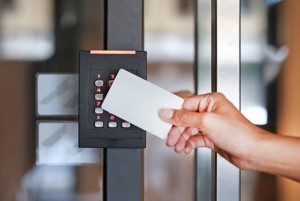Few business owners or enterprise managers have a hard time understanding the idea behind access control. At its most basic, access control involves keeping people without the proper credentials out of sensitive areas. Everyone knows that you can’t have an interested interloper entering your property at any time, and access control helps safeguard against that. The real questions start when clients begin to wonder which configuration or system is best.
How many types of access control systems are there?
Electronic cards and hardwired readers. Smartphone apps and linked turnstiles. Biometric scanners and linked alarm systems. Access control systems come in all sorts of arrangements, many specifically designed for individual clients. But despite their variability, access control systems function in one of three ways.
According to the Federal Financial Institutions Examination Council, credentialing authorized parties so that an access control system will admit them boils down to a trio of options.

- Passwords & Pin Numbers – Credentialing can depend on mental knowledge, something that the individual knows. This would include options such as passwords or PINs.
- Key Cards & Fobs – Managers can authorize specific parties by providing them with specific items, things that they have. Think about fobs or identification cards embedded with a person-specific code, something that an individual must have on their person in order to gain access.
- Biometric – Access control systems can be designed so that they admit particular people based solely on who they are. This is the province of biometric technology, machines that scan irises or read fingerprints.
Though access-control options can seem complicated, at their heart, these are your three basic choices. Which you select depends on your specific circumstances and budget.
What are the benefits of an access control system?
Clients intuitively know that access control systems play an important role in a security system. They keep potential criminals exactly where they should be: outside of your property. However, sometimes managers and decision makers struggle to understand why they should prefer access control over, say, a sturdy deadbolt or an alarm system. Of course, sometimes a simpler option will work best. But access control has a number of benefits that easier-to-understand systems lack.
For example, consider the humble lock and key. It works well enough, but that key provides universal access. Anyone who has it can enter the premises, including disgruntled employees with a score to settle. With an access control system, you can easily revoke privileges with the press of a button.
Access control systems also allow decision makers to grant personalized access to specific individuals. A manager may decide that a particular person should be able to only access one area — or all of them. Even better, this only requires using the system’s software, not tinkering with the physical hardware.
Managers and small businesses depend on data in order to make judgement calls. Having the best possible view of their enterprises helps them make the best possible choices. Access control systems provide crucial information about those who enter and exit and when they do so. That information can help make crucial decisions.
Sadly, those decisions can sometimes involve legal action, particularly when it comes to cases of theft or fraud. Should you need to go to court, know that access control systems provide an ironclad audit trail.
Why is physical access control important?
Access control benefits businesses and organizations on a number of levels. An access control system:
- Defrays risk of theft or fraud
- Increases the physical safety of employees, clients, and/or tenants
- Guards against lawsuits
- Simplifies management
There’s a final boon that you won’t find referenced by security companies or in professional literature, but it’s incredibly important: peace of mind. AT&I Systems can help soothe your worries and customize the perfect access control system for you. Call (866) 436-3516 or contact us to learn more.


















